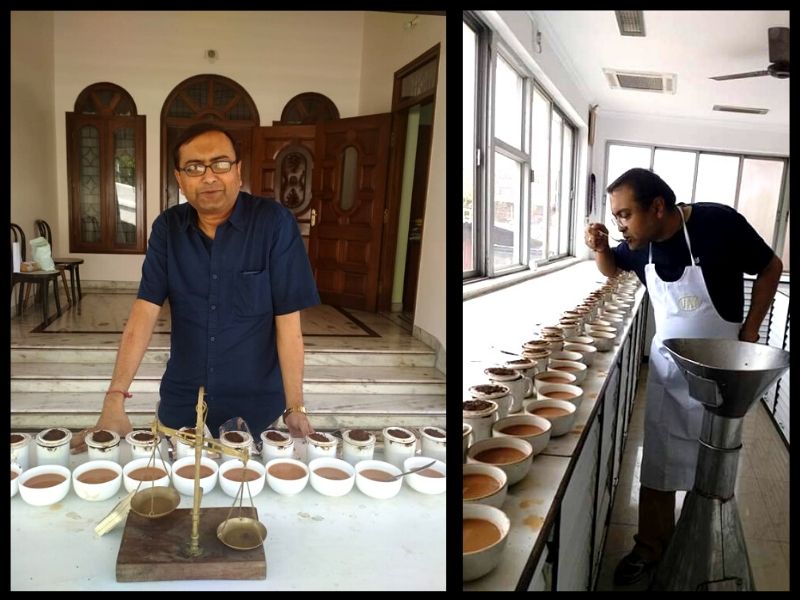Every year, December 15 is celebrated as International Tea Day. Apart from celebrating ‘tea’ – one of the most consumed beverages worldwide – this day also calls for better working conditions of tea plantation workers across the globe.
On this occasion, we spoke in an interview with Rittik Chatterjee, a veteran tea taster who has been in the profession since the past 15 years, to understand more about this ‘magic beverage’.
“My father was a banker and when I was in class VIII, he was posted in Siliguri. That is when I first saw the life of somebody who was in the business of tea plantation. Back then, they led quite a luxurious life, living in bungalows and experiencing fine joys of life. Since I was young, I was quite attracted to that lifestyle, but as I started learning more about the field, it started catching my fancy,” says Chatterjee.
After his general studies, he pursued tea management from the National Institute of Tea Management (NITM), Siliguri and further did a certification course in plantation management. He started his career overlooking manufacturing aspects of a tea plantation but soon switched tracks to become a full-time tea taster. “Tea tasting is an off-beat profession. It is unlike other jobs where you climb the ladders of professional success steadily. This is because tea tasting is an art, and parameters of success in this profession are different. Personally, the fact that the tea tested and approved by me is consumed by lakhs of tea enthusiasts in India and world is what gives me immense joy,” he says. Chatterjee tastes hundreds of cups of tea in a day. “In market, you will get Rs 10 tea pouches and you will get Rs 1000 tea pouches also. My job is to check the tea quality, its blend, and also its market price and commercial viability. My advice to youngsters wishing to step into this field is that they need to understand tea as a crop and brush up their basics. In this profession, you need to be driven by great passion and love for tea,” he adds.
Given his background in tea manufacturing, he has worked closely with plantation workers. When asked how government could intervene to make sure that plantation workers’ rights are not infringed upon, he says, “Most of the plantation workers are the sole earning members of their family and several people are dependent on them. We see that a lot of plantations close down, and while the owners may not be much affected by it, the workers sure are hit severely. Concerned authorities should make sure that these workers enjoy certain job security and lead a dignified life as they rightly deserve.”
At the end of the conversation, he asks us our favourite beverage, and when we say tea, he replies with an enthusiastic ‘good!’. Indeed, as author Arthur Wing Pinero said in his book – Sweet Lavender-A Comedy In Three Acts– “While there is tea, there is hope.”
Also read: The most unique and bizarre courses you can study
Posted in Edutainment























